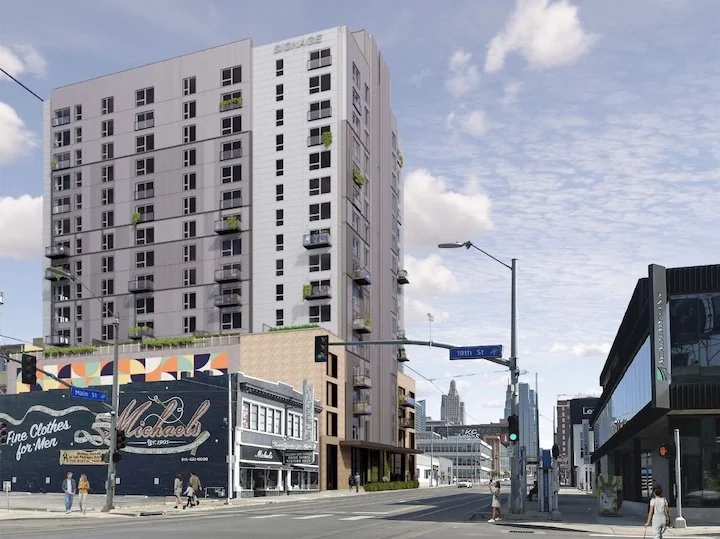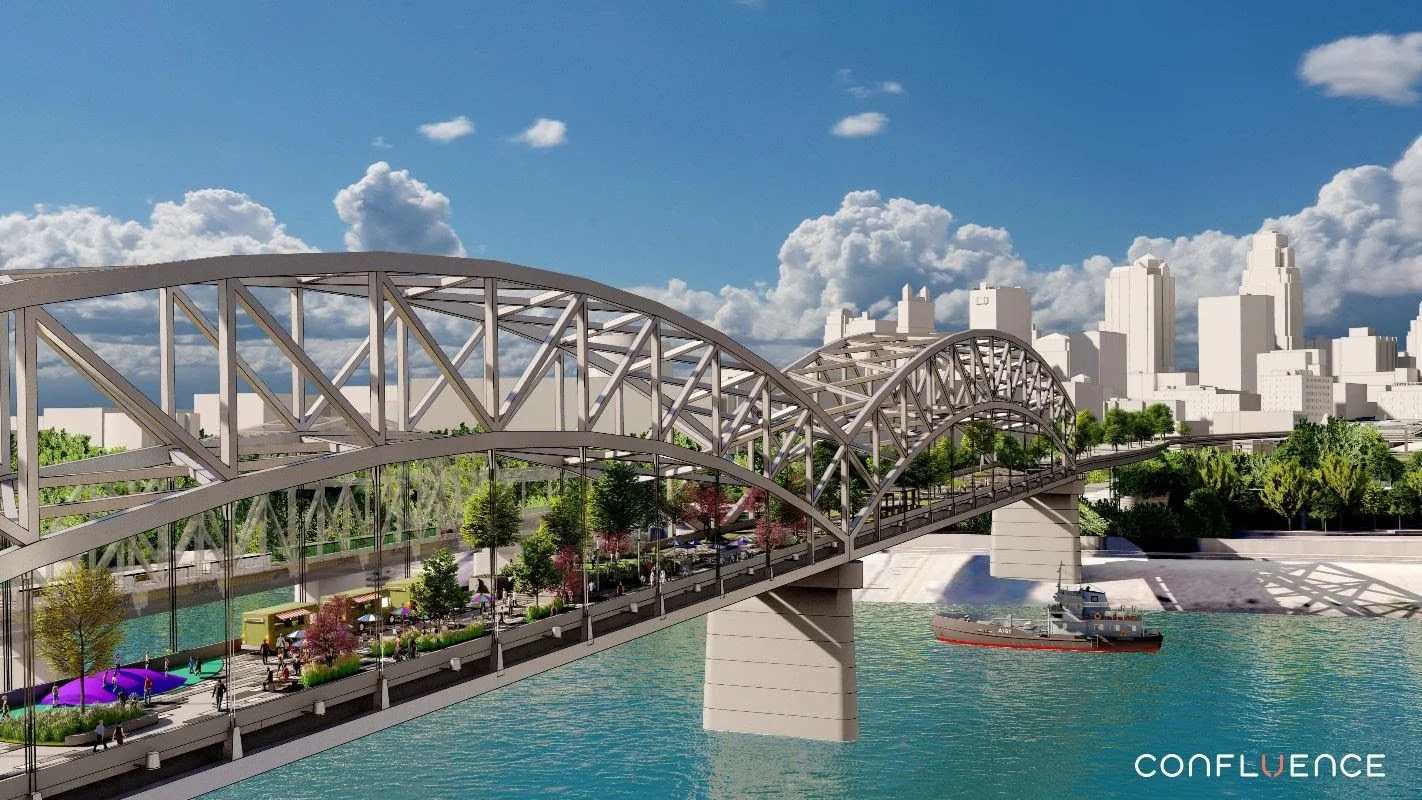Feature Image: A 25-story, 385-foot-high mixed-use building is set to break ground in 2025 at 800 Grand Ave., replacing an existing parking garage. Image courtesy of BR Cos. | Rendering credit: Hoefer Welker
City seeks input on future of iconic Buck O'Neil Bridge
New KC city manager shares future plans, priorities
Improving efficiencies and supporting underserved communities are among the top priorities for Kansas City, Missouri’s new city manager, Brian Platt.
This week, KC Downtowners welcomed Platt as their monthly virtual luncheon speaker. Kim Gile, community reference manager for Kansas City Public Library and president of KC Downtowners, moderated.
Platt, who formerly served as city manager/business administrator for Jersey City, New Jersey, began his role in Kansas City on December 7, 2020.
Citing the city’s $70 million budget deficit for the next year, Platt said he is committed to finding ways to provide and deliver city services without reducing personnel, emergency response times or any crucial services.
“We’re looking at a lot of ways where we can provide the same services, possibly even provide more of those services, in a much more efficient and cost-effective manner,” said Platt.
Platt said that since he arrived, the city already has made some specific and aggressive changes to the snow removal policy to make sure that the city is removing snow quickly and efficiently.
As an example, Platt pointed out converting city street lights to LED lights could, over time, cut the annual cost for street lights and their maintenance by nearly one-half.
Platt said he is approaching his new position by listening and learning from the city’s residents and stakeholders to see what the biggest challenges are and will work collectively and collaboratively to identify the best path forward.
“I’m not coming in here and saying this is how I think things should be,” said Platt.
The day before Platt assumed his position, the Kansas City Star released its report on racism in the fire department. One of the first challenges with which Platt was tasked was tackling systemic racism within city government.
“This problem exists and transcends far beyond the fire department. It’s in all of our departments and it’s even beyond the halls of city hall, so to speak. It’s a cultural challenge that is not going to be something that we solve overnight,” Platt said.
Platt said the city will be making some big investments to increase staffing in its human resources department and providing management training to make sure managers know the types of behaviors that are acceptable and the best ways to support their staff.
Platt supports making economic development incentives more widely available to underserved communities where there might be some local developers or property owners that have the ability to build a successful project, but might not know or understand the incentive process.
Platt has been speaking with city council members privately - and discussing publicly with community groups - the need for a very detailed, specific and comprehensive development and incentive policy for the entire city.
“One of the ways that a better policy (with) more transparency, more openness will be helpful is anyone in the city, not just the biggest players, not just those with the means and those with the most resources, have access to those incentives. There seem to be plenty of incentives available. It’s not a question necessarily of, for the most part, making more incentives available, it’s a question of getting them into the right hands and ensuring that we’re giving them only in the circumstances and cases with the highest need,” Platt said.
Moving from a part of the country where the river is such an important part of the city, Platt was surprised to see so little development along Kansas City’s Riverfront.
“I think there’s a huge opportunity to do more stuff along the waterfront even if it’s just like restaurants and social activities and that sort of thing. But, it’s one of those resources that absolutely has a lot more potential,” Platt said.
He also said that discussions are underway internally about the opportunity for energy capture from the river itself.
“You think about solar, you think about wind, but we also should think about hydroelectric power. The water flowing down that river, you may not notice if you look at it, but there are tens of thousands of gallons flowing by every second and that energy and that force of water can be a big, literally, creator of power for the city,” said Platt.






